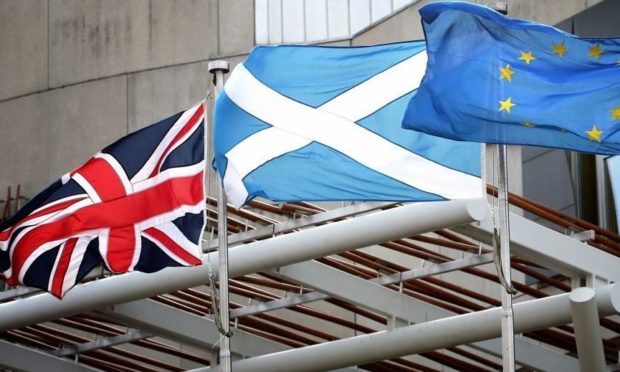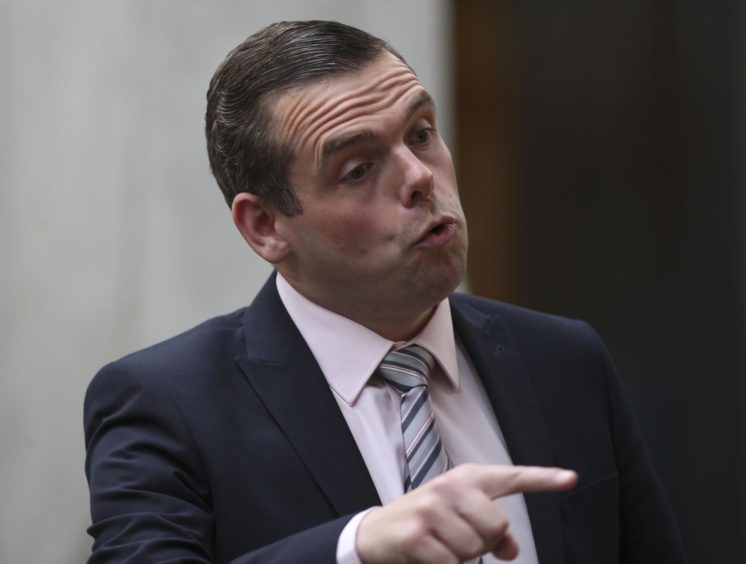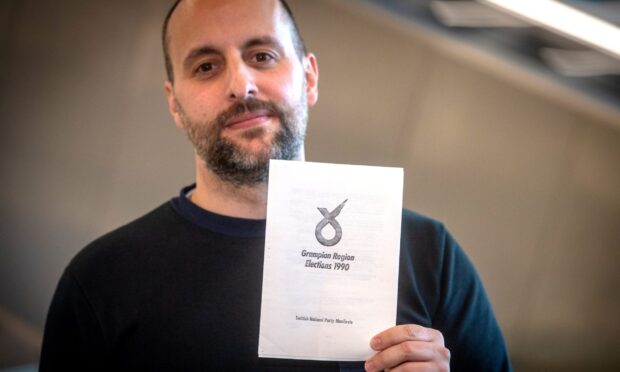Under normal circumstances, anything that distracted from the agonising process of leaving the European Union would have been welcomed.
As far as the political classes – and everyone else – are concerned, the last six months have been an almighty distraction.
Tragically, it has come in the form of a deadly pandemic which until recently has overshadowed the constitutional upheaval which has been rumbling in the background.
But with the December 31st deadline for ending the transition period edging ever closer, controversy over Brexit has erupted once more in spectacular fashion.
Not even the distressing increase in Covid cases or the consequent and tedious tightening of restrictions can deflect from the Brexit-inspired wailing and gnashing of teeth gripping UK and Scottish politics.
As ever with Brexit, the controversy comes in a complex form and to the accompaniment of the foreboding sound of the opening of cans of worms.
An astonishing admission
In this instance, the most political heat has been stoked by Northern Ireland Secretary Brandon Lewis saying that the UK Government’s Internal Market Bill will break international law.
This astonishing admission relates to the aspect of the bill which undermines the Withdrawal Agreement – the supposedly “oven ready” divorce deal signed up to by the UK and EU, which came into effect at the beginning of the year.
Of particular concern to the UK Government’s critics – an unhappy band which includes some Tory backbenchers – is the legislation’s power to “disapply” previously-agreed rules on the movement of goods under the so-called Northern Ireland protocol.
The Northern Ireland protocol stated that Northern Ireland would remain part of the UK’s customs territory so its goods would be included when the UK signs a free trade deal with another country.
At the same time, Northern Ireland would have to stick to some EU rules to allow goods to move freely into the Irish Republic.
The change was made amid concerns among pro-Brexit MPs that the protocol could keep the UK permanently tied to EU law and Boris Johnson’s claim that the bloc had threatened to impose tariffs on goods going to Northern Ireland.
When there is a bid to interfere with a complicated and difficult puzzle, the law of unintended consequences comes into play.”
This is the latest attempt to deal with the seemingly perpetual conundrum posed by Brexit and the fact that Northern Ireland, while an integral part of the UK, has a land border with the Irish Republic – an integral part of the EU.
But as is the nature of these things, when there is a bid to interfere with a complicated and difficult puzzle, the law of unintended consequences comes into play.
Therefore, alongside the disbelief that the UK Government should even contemplate law-breaking of this nature, has been the anger of what sort of precedent this would create when it comes to other contentious constitutional matters with a legal dimension.
Wildcat independence referendum
Hence the Lib Dem MP for Orkney and Shetland Alistair Carmichael’s point about what would happen if the SNP decided to defy the law and go-ahead with a wildcat independence referendum without the agreement of the UK Government.
“This would be illegal and I would oppose it on those grounds,” wrote Mr Carmichael in an article for PoliticsHome. “But what moral authority would the prime minister have to deny it when he is so ready to dispense with inconvenient laws himself?”
Under these circumstances, it is perhaps not surprising that Scottish Conservatives have been reluctant to leap to the UK Government’s defence. But neither have they been willing to stick their heads above the parapet to criticise Mr Johnson’s Internal Market Bill.
In that respect, the Scottish Tories have differed from the likes of former Tory leaders Theresa May and Lord (Michael) Howard who have been scathing about the bill. Even David Cameron, the former prime minister whose failure to win the Brexit referendum has led indirectly to the current situation, expressed his misgivings.
But the silence from the Tory ranks north of the border has been pretty unedifying when one considers what is at stake.
The Tory silence was deafening
Last week, I took the trouble to email all Scottish Conservative MPs and MSPs to canvass their views on the legislation – all 37 of them.
The question was perhaps a little gung-ho. Something along the lines of if they were “happy with this potentially illegal legislation” or whether they were prepared to resign over it.
The response – or lack of it – was instructive. The silence was almost deafening. Scottish Secretary Alister Jack referred to a contribution he made in defence of the bill in the House of Commons.
The remainder, including the new Scottish Conservative leader Douglas Ross, chose not to answer in person, but referred to a statement from constitution spokesman Deane Lockhart, which emphasised the importance of the UK internal market for hundreds of thousands of Scottish jobs and expressed the hope that the controversial “technical changes” would not be required.
The UK Internal Market Bill is important for jobs and businesses across Scotland.
Putting 545,00 jobs that rely on UK trade at risk in the middle of a pandemic is not an option. I am voting for the bill at this stage to make sure that safety net for Scottish jobs is there.
— Douglas Ross MP (@Douglas4Moray) September 14, 2020
Mr Ross did comment almost a week later before he joined the majority of Tory MPs to overcome the internal rebellion and vote through the legislation this week, saying he was doing it to protect 545,000 Scottish jobs.
His support of the bill led to the SNP denouncing him as “spineless”. Others can make up their own minds.
The clock may be ticking towards the end of the Brexit transition period, but there is still a long way to go on this one.













